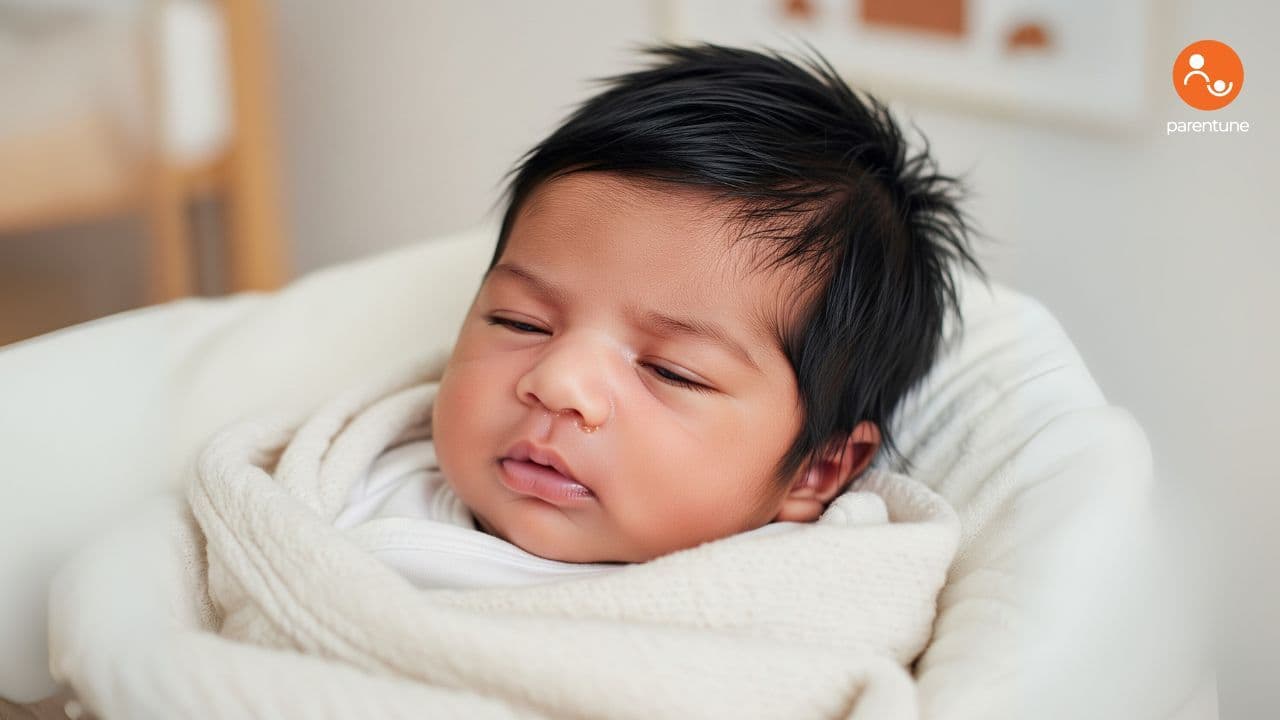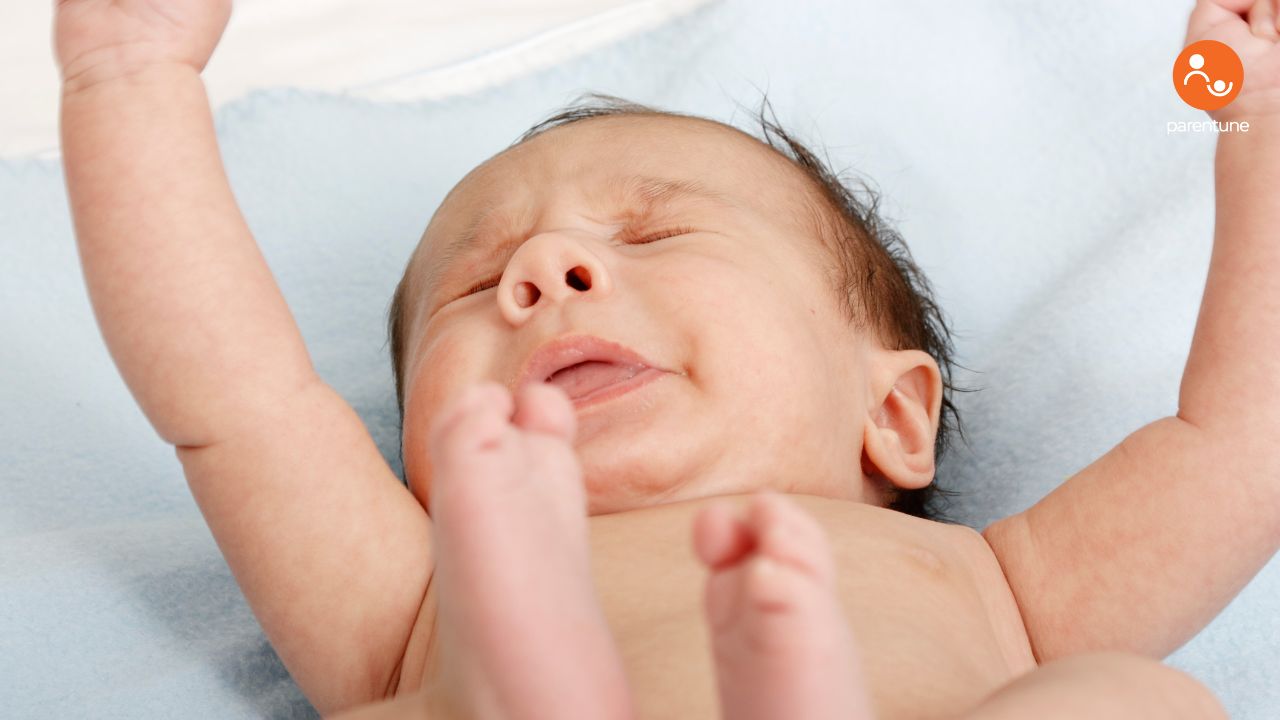medical
Newborn Sneezing: Normal Reflex Or Red Flag?

There’s a sound every new parent tunes into with eerie precision.
Not the first cry.
Not the midnight whimper.
The tiny, rapid-fire achoo that leaves you wondering—is this normal?
If your newborn keeps sneezing, you’re not alone in wondering whether it’s something benign… or the beginning of a cold, allergy, or worse. But before you spiral into Google rabbit holes or call your pediatrician in a panic, let’s pause.
Because sneezing in newborns?
It’s often more ordinary than ominous.
Why Do Newborns Sneeze So Often?
Doctor Q&As from Parents like you
Sneezing is their system reboot. Literally.
Newborns are built for survival—but barely. Their noses are tiny. Their immune systems are still figuring things out. And their only way of clearing blockages?
Sneezing.
It’s not just about germs or infections. It’s about biology doing housekeeping.
Some of the most common non-threatening reasons your newborn is sneezing:
-
Nasal Irritants: Dust, strong smells, dry air—even your favorite perfume.
-
Amniotic Residue: They're still clearing out fluids from the womb.
-
Sensitive Reflexes: Newborns are wired to sneeze more. Their nasal passages are hypersensitive to everything.
-
Milk Dribbles: Yep, a little milk backing up into the nasal cavity can trigger a sneeze.
So, sneezing ≠ sick.
Most of the time, it’s just them adjusting to the outside world.
You may also like:
How Much Sneezing Is Too Much?
Pattern > Frequency.
If your baby sneezes a few times a day—completely normal.
Even 5–10 sneezes in a row? Still often normal.
What matters more is what else is happening. Here’s when to pause and observe:
-
Do they have a fever?
-
Is their feeding or sleeping disrupted?
-
Any signs of labored breathing or wheezing?
-
Are they congested with thick mucus, especially green or yellow?
-
Are there red eyes, rashes, or swelling involved?
If sneezing is a solo act—no need to worry.
If it comes with other symptoms, it’s worth a check-in with your pediatrician.

Can Newborns Have Allergies?
Unlikely. But not impossible.
Environmental allergies—like pollen or dust mites—are rare in newborns. Their immune systems aren’t developed enough yet to mount a full allergic response.
That said, here are three related possibilities:
-
Irritants, not allergens: Smoke, perfumes, or cleaning products can trigger sneezing without being true allergies.
-
Milk protein sensitivity: If your baby is formula-fed (or you're breastfeeding and consuming dairy), sneezing combined with digestive issues might point to a cow’s milk protein intolerance.
-
Pet dander sensitivity: While rare, this can occasionally cause mild reactions. Not a full-blown allergy, but something to observe if sneezing is frequent and there's congestion or rash.
Still, actual allergic rhinitis usually shows up after 6 months, not before.
Is It A Cold? Or Something Else?
Newborn colds are real—but they don’t start with sneezing alone.
Colds tend to announce themselves with a combo pack:
-
Runny or stuffy nose
-
Decreased appetite
-
Fussiness
-
Mild fever
-
Cough
The key word here? Cluster.
Sneezing by itself is a prelude, not a diagnosis.
Also worth noting: newborns are obligate nose breathers. So even mild congestion can make them sound snuffly, especially while feeding. It doesn’t always mean they’re sick.
How Can You Help A Sneezing Newborn?
Support the system. Don’t try to silence it.
Sneezing is protective. But if you want to reduce irritants or make things easier:
-
Use a humidifier to ease dryness, especially in winter.
-
Avoid strong scents (perfumes, sprays, incense).
-
Keep pets clean and off the baby’s sleeping area.
-
Use saline drops and a nasal aspirator for stuffy noses—gently.
-
Clean their room regularly (but skip the harsh cleaners).
In short: make their environment breathable, not bubble-wrapped.
Recommended blogs:
When Should You See A Doctor?
Here’s a simple rule of thumb: If sneezing is the only symptom—wait and watch.
But call your pediatrician if:
-
Sneezing is persistent and forceful, like it’s interrupting feeding or sleep
-
There’s a fever over 100.4°F (38°C) in the first 3 months
-
Breathing looks hard (flared nostrils, chest tugging, wheezing)
-
Baby is not feeding well or seems lethargic
-
There’s a rash, eye swelling, or other visible reaction
Trust your gut—but also trust the system.
Parentune’s medical experts often remind us: The body knows what it’s doing. Our job is to observe, support, and only intervene when it’s called for.
What Other Parents Are Seeing
In the Parentune community, sneezing comes up more than you'd expect.
One parent shared how her baby would sneeze every time the AC turned on. Another realized her newborn sneezed after every feeding—just a tiny bit of milk entering the nasal passage.
It’s this kind of shared experience that makes parenting feel less lonely.
You’re not navigating this in isolation.
And when you need to know what’s normal, what’s not, and what’s next—the Parentune community and expert-led guides are there.
The Big Picture: Sneezing Isn’t The Symptom—It’s The System At Work
Let’s zoom out.
Newborns are adjusting to life outside the womb.
Everything—light, air, dust, milk, movement—is a new stimulus.
Sneezing is part of that adaptation.
We don’t panic when a phone reboots.
We shouldn’t panic when a baby sneezes.
Instead, ask:
-
Is this the only symptom?
-
Is my baby alert, feeding, and sleeping well?
-
Is the environment clean and breathable?
That lens can keep panic at bay and turn parenting into what it’s meant to be—a process of learning and support.
Final Takeaway
Newborn sneezing is normal. Common. And usually harmless.
But parenting in the first few months doesn’t always feel that way.
Every sound, sneeze, or sigh can feel like a signal you’re supposed to decode.
That’s why platforms like Parentune exist—not to give you one-size-fits-all answers, but to help you ask better questions, learn from others, and trust your instinct with expert backing.
In the end, the question isn’t why is my baby sneezing?
It’s: What does this tell me—and what doesn’t it?
And the answer, most of the time, is:
They’re just getting used to the world.
And you’re getting used to being their world.
Be the first to support
Be the first to share
Related Blogs & Vlogs
No related events found.